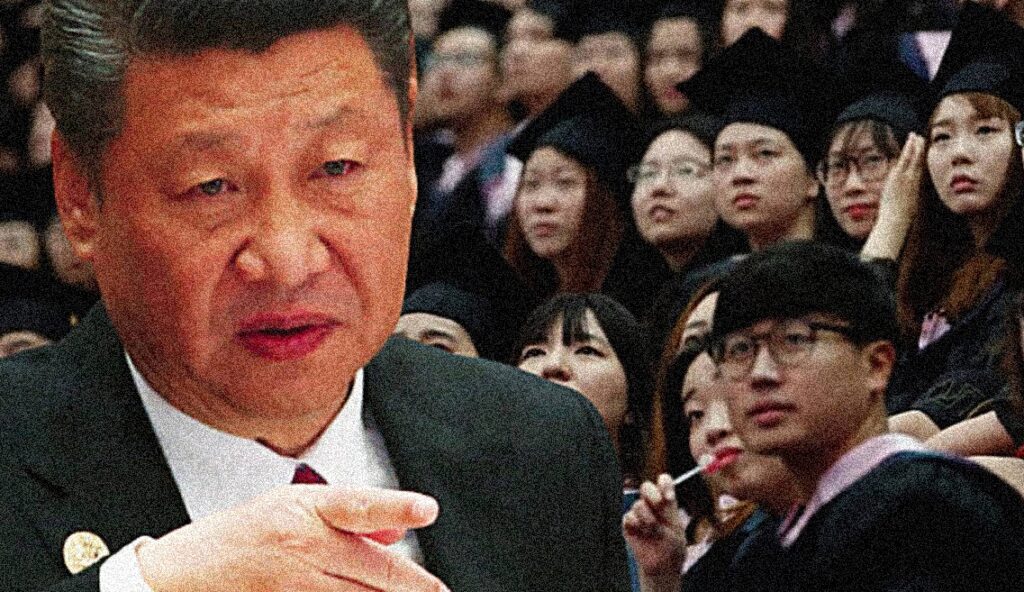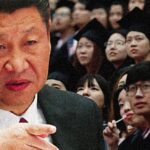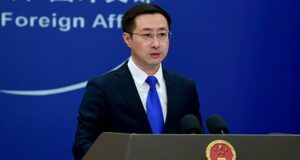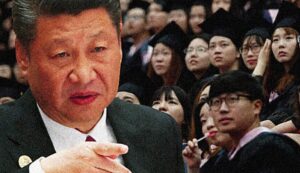
In late May, U.S. Secretary of State Marco Rubio announced a clampdown on Chinese students receiving visas to study here.
A House bill to “amend the Immigration and Nationality Act to prohibit the admission of Chinese nationals as nonimmigrant students,” the Stop CCP Visas Act of 2025, had been introduced in March 2025. More recently, Stanford University student journalists gained national attention for exposing Beijing’s use of Chinese students on their campus.
National Intelligence Law
Senator Ashley Moody, who is backing the draft law, issued a statement noting that in 2015 the People’s Republic of China had enacted a National Security Law that “requires PRC nationals to cooperate with the CCP on ‘matters of national security’ ”; and, in 2017, enacted a National Intelligence Law that “requires PRC nationals to assist in intelligence-gathering.”
This effectively makes all mainland Chinese students spies, at least potentially.
Moody observes that the Chinese Communist Party “took advantage of Americans’ goodwill and subversively exported agents to our shores to spy, oppress dissidents and enemies of the state, and steal publicly funded research and intellectual property to the tune of billions of dollars. Now, by law, nationals of the PRC are forced to engage in intelligence gathering and espionage, and those who refuse face retaliation and persecution against themselves and family members. It is unfortunate that the CCP’s draconian national security law requires us to take such drastic measures, but the risk of allowing this to continue unabated is too great to ignore.”
In sum, “How can we keep offering 300,000 student visas to Chinese nationals every year when we KNOW they are legally required to gather intelligence for the CCP? The answer is simple: we can’t.”
That’s the logic of the draft law. But Rubio proposes what looks like a milder approach: “The U.S. State Department will work with the Department of Homeland Security to aggressively revoke visas for Chinese students, including those with connections to the Chinese Communist Party or studying in critical fields.” (Emphasis added.)
He seems to be saying that he will deny visas only to Party members or to those students in critical (sensitive?) fields. Meanwhile, the Stop CCP Visas Act of 2025 would prohibit all mainland Chinese from receiving visas. Quite a difference, so let’s not be misled by the word “aggressively.”
Thousand Talents Plan
It’s not just China’s intelligence services that are managing Chinese students. It’s programs like The Thousand Talents Plan, which monitors promising scholars and, after graduation, lures them back to serve communist China. This is one program among many. The Thousand Talents is fairly well known but “merely a tiny piece of a larger strategy” that involves “an estimated 250-plus such programs.”
In 2020, Georgetown University launched its Chinese Talent Program Tracker, “a catalogue of Chinese party-state-sponsored initiatives” like the Thousand Talents Plan. It would be interesting to know who on our side is using the tracker and how.
Thousand Talents is not limited to recruiting Chinese nationals. It “aims to recruit leading international experts in science and technology, research, and innovation.” The program openly offers “permanent recruitment into Chinese academia and attempts to bring in leading international experts at top-tier universities and research centers for short-term employment in China.”
As far back as 2018, former professors and researchers at various universities and other institutions were being “charged with crimes related to their participation in Chinese talent recruitment programs.”
The FBI is very direct in its assessment: “China oversees hundreds of talent plans. All incentivize its members to steal foreign technologies needed to advance China’s national, military, and economic goals.”
Further, the FBI reports that participants “enter into a contract with a Chinese university or company—often affiliated with the Chinese government—that usually requires them to subject themselves to Chinese laws, share new technology developments or breakthroughs only with China (they can’t share this information with their U.S employer or host without special authorization from China), [and] recruit other experts into the program—often their own colleagues….
“China will let people with existing jobs in the United States participate in talent plans part-time so they can maintain their access to intellectual property, trade secrets, pre-publication data and methods, and U.S. funding for their research.”
It’s the students. It’s the faculty.
So, as we can see, we have two problems: first, communist control of Chinese students; second, the greed and ambition of our non-Chinese faculty.
As Rubio and Congress take steps to limit the threat from students, Senator Tom Cotton is pursuing related legislation, which he introduced on March 11: The Guarding American Technology from Exploitation Act. “It’s common sense that scientists from China, Russia, Iran, and North Korea should not have access to our national labs,” Cotton says.
The Department of Energy manages our nuclear research and weapons production. If you knew we had foreigners—including Chinese—embedded in our nuclear research labs, this legislation will seem long overdue. If you didn’t know, consider the security-mindedness or lack of security-mindedness of our bureaucracy and that they need a law to stop them from sharing secrets with Red China.
What we need to close the loop between communist-controlled students and communist-collaborating solons is more than one DOE-specific law. We also need a robust law preventing college faculty from signing on to Beijing’s talent programs.
Instead of chasing down miscreant professors and scientists, just shut down program access. And make sure that the ban on Chinese student visas is total, not merely “aggressive.” □
James Roth works for a major defense contractor in Virginia.
Also see:
Daily Caller: “DOJ Charges CCP Loyalist For Smuggling Potential Bioweapon Mushroom Into US” (June 3, 2025)
StoptheCCP.org: “Why U.S. Universities Accept Spying by the Chinese Communist Party”
StoptheCCP.org: “People-to-People Power Isn’t Converting the Chinese Communist Party”












